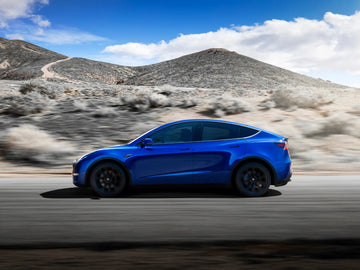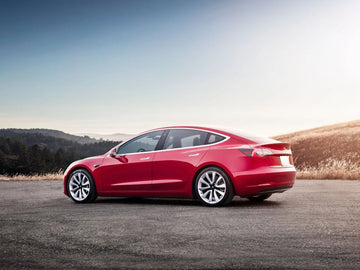Electric vehicles (EVs) have often faced criticism for their reduced range in colder weather, but a recent study focusing on Teslas suggests that cooler regions could offer long-term benefits for EV batteries.
Recurrent Auto released the findings of a comprehensive study this week, revealing that Tesla vehicles operated in cold climates consistently outperformed their counterparts in hot climates. The study, which analyzed data from over 12,500 Tesla vehicles across the United States, utilized Recurrent's proprietary software for data access.
This trend held true across various Tesla models and model years, with the most significant improvement observed in the Model Y. Specifically, Model Y units from the 2020 model year achieved average range scores of 95 in colder climates compared to 92 in warmer climates, as illustrated in the accompanying infographic.
To assess these range scores, researchers measured the expected remaining range of each EV at the time of the study. A Tesla with a range score of 90, for instance, would still retain 90 percent of its original range. The study employed climate designations provided by the U.S. Department of Energy, categorizing them as "hot," "cold," and "marine" climates.

It's worth noting that the study exclusively focused on Teslas due to their prevalence and the substantial dataset available. Additionally, Recurrent highlighted Tesla's advanced battery thermal management system, which effectively safeguards the battery against long-term environmental damage.
Recurrent's research indicates that environmental heat contributes additional energy to electrochemical reactions within EV batteries, accelerating undesirable chemical processes that contribute to battery aging. The generally accepted threshold for accelerated battery degradation is around 86 degrees Fahrenheit (30 degrees Celsius).
While energy consumption for cabin heating may lead to range loss in colder climates, Recurrent suggests that this is a temporary effect. Unlike heat, which has a significant electrochemical impact on EV batteries, the range lost in cold weather can be regained as temperatures rise.
For Tesla owners in warmer climates seeking to preserve battery longevity, there are several recommendations to consider. Parking in the shade or a garage can help mitigate excessive battery heating when exposed to sunlight. When parking in the sun is unavoidable, Recurrent advises charging the battery to approximately halfway, as it tends to be more stable at this level.
Prospective buyers, whether considering new or used Teslas, should explore vehicles equipped with newer lithium iron phosphate (LFP) batteries, known for their resilience in hot climates. Those purchasing used EVs should also investigate the previous storage and usage conditions of the vehicle.
Lastly, the researchers strongly recommend owning a vehicle equipped with an active thermal management system and keeping it plugged in when not in use. According to Recurrent, this enables the vehicle to initiate battery cooling at lower temperatures compared to when it remains unplugged.
Tesery, dedicated to providing quality products and services to Tesla owners. The most trusted Tesla accessories shop and supplier, the choice of over 28,000 Tesla owners!




















































